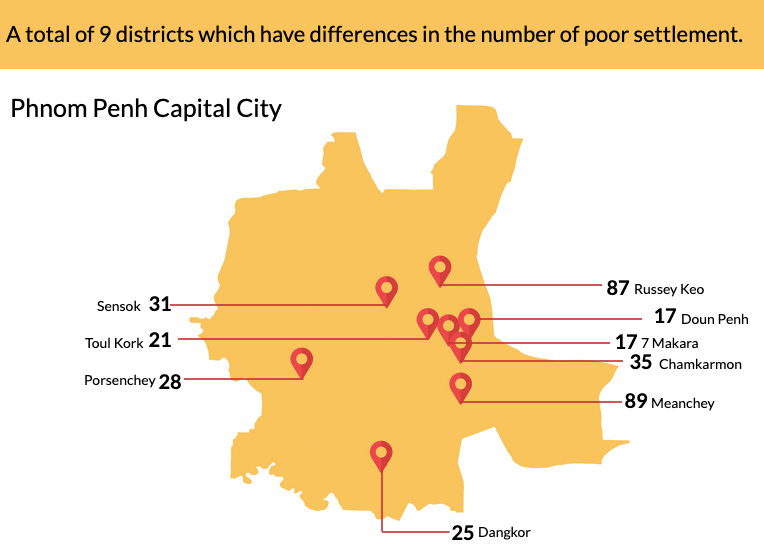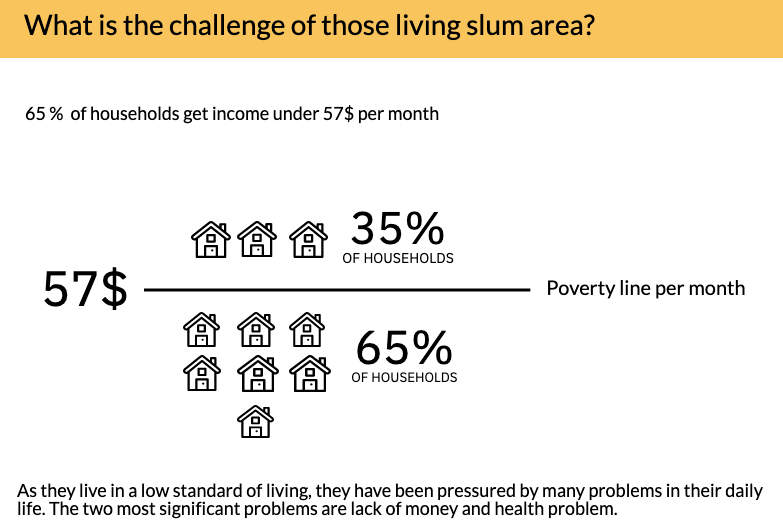Success story of data literacy training program: LY Vichheka
 In Cambodia, data-driven storytelling is almost non-existent and still a very new concept to most journalists, media branches, newsrooms and CSOs. In the newsrooms, data journalism is rarely produced due to limited data literacy.
In Cambodia, data-driven storytelling is almost non-existent and still a very new concept to most journalists, media branches, newsrooms and CSOs. In the newsrooms, data journalism is rarely produced due to limited data literacy.
The project aimed to train people in data-driven storytelling. While there is substantial availability of data, data-driven journalism is still a very new concept in Cambodia given the limited data literacy and rare use of data visualizations. As an open data organization, ODC believes that journalists and communicators can bridge the gap between raw data and the general public by disseminating and presenting simplified information.
LY Vichheka was one of the participants in the ODC data literacy training program. Vichheka graduated with a bachelor’s degree in environmental science from the Royal University of Phnom Penh as well as a bachelor’s degree in English language and literature at the University of Cambodia. After graduation, she worked for her family company for a little while aiming towards working with the international non-governmental organization community. She is now actively involved in social science research and works to advocate within urban-poor communities in Phnom Penh City.
Before training with ODC, Vichheka had experience using data, but only to a limited capacity. She was able to use Excel but didn’t know to use visualizations to tell compelling data-driven stories. This was what drew Vichheka to the ODC data literacy program. She was told by a friend about the program via a Facebook ad and thought that it would help her better advance her ability to promote policy. She quickly found that it was relevant to her need for upgrading skills in data visualization.
“Personally, data literacy training is a very special program that covers realizable data, data visualization tools, and storytelling. Through this program, I have had a chance to write one story to show how people are living in very difficult conditions in four urban-poor communities in Phnom Penh. Specifically, learning those skills equips me with core knowledge and analysis tools to help to complete my research studies.”
Since completion of the program, Vichheka has applied the skills she learned to her research studies. Last year, she conducted two studies following up on the project on urban-poor communities that she began working on during the ODC training. She used Pivot tables to analyze data, as well as creating online visualizations with tools that she was taught how to use during the training (Datawrapper and Flourish) to produce the graphs and charts.
Her research has greatly improved the capacity of the INGO she works at, Planète Enfants & Développement, to promote its poverty alleviation policy. Vichheka believes that the data-driven additions to the Planète Enfants & Développement reports have added to its credibility and policy agenda.
The research Vichheka does uses data to illustrate the living conditions in urban poor settlements with an aim to change policy to improve their lives. “I would say we bring this information to discuss with policymakers to support them as they make their decisions.” They have begun sharing the findings of her NGO, to which she contributed, with other NGOs and government workers to begin discussing policy change.
Enjoy a video of the reflection on the achievements of our Data Literacy trainees. After the one-year program, they have used the data literacy skills for their projects and for personal and institutional purposes. We hope they will continue to use the skills and spread the data literacy skills even broader.



